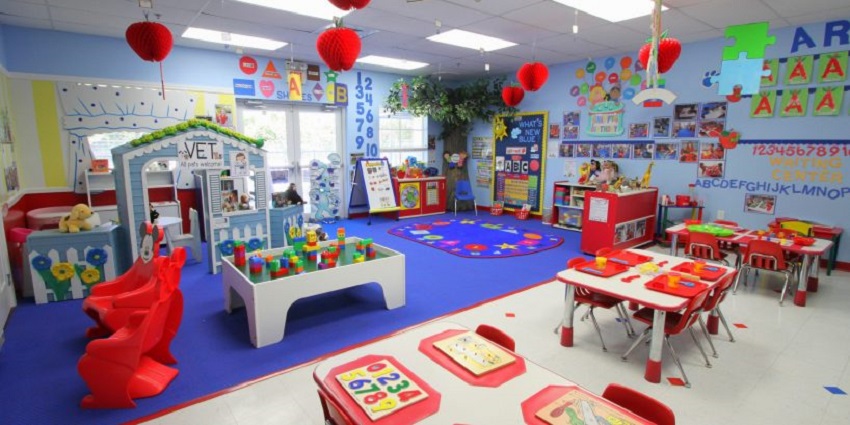
09 Aug What are Preschool Hours in the US?
Preschool education is vital to a child’s early development and lays the foundation for lifelong learning. In the United States, preschool hours refer to the duration and structure of early education programs designed for children between the ages of three and five. This article delves into the significance of preschool hours, the benefits it offers to children, parents, and society, and the various types of preschool programs available in the US. This content is presented by Prforeducators.com
The Importance of Early Education
1. Building Cognitive Skills
Preschool hours play a crucial role in developing a child’s cognitive abilities. During these formative years, children are exposed to various activities that stimulate their thinking, problem-solving, and decision-making skills. Engaging in age-appropriate activities helps enhance memory retention and improves their attention spans. Find out how many hours is preschool.
2. Social and Emotional Development
Preschool provides a conducive environment for children to learn important social and emotional skills. They interact with peers, teachers, and caregivers, fostering communication, empathy, and emotional intelligence. Learning to express emotions and work collaboratively lays a strong foundation for their future relationships.
3. Language and Communication Skills
The early years are when children’s language skills develop rapidly. Preschool hours focus on language enrichment, encouraging children to express themselves verbally, improving vocabulary, and honing their listening skills. Strong language skills are essential for academic success and future communication.
The Structure of Preschool Hours
1. Part-Time Programs
Part-time preschool hours usually last two to four hours per day, two to three days a week. These programs provide a gentle introduction to the educational environment, allowing children to transition smoothly from home to school.
2. Full-Time Programs
Full-time preschool hours typically last four to six hours per day, five days a week. These comprehensive programs offer a more structured curriculum, including various learning activities, playtime, meals, and rest periods.
3. Extended Care Programs
Some preschools offer extended care services beyond regular hours to accommodate working parents. These programs provide supervision and additional activities during early mornings or late afternoons.
The Benefits of Preschool Hours
1. School Readiness
Attending preschool equips children with the necessary skills and knowledge to enter kindergarten confidently. They learn to follow routines, adapt to schedules, and participate in group activities, easing their transition to formal education.
2. Enhanced Learning Abilities
Preschool hours enhance children’s cognitive abilities, making them more receptive to new concepts and information. They develop a love for learning, setting the stage for academic success in later years.
3. Socialization and Confidence
Interacting with peers in preschool helps children build social skills and self-confidence. They learn to share, cooperate, and resolve conflicts, contributing to their overall emotional development.
4. Parental Involvement
Preschools often encourage parental involvement, creating a strong partnership between parents and teachers. This collaboration enhances the child’s learning experience and fosters a supportive learning environment.
Choosing the Right Preschool Program
1. Research and Visit
Research different preschools in your area and schedule visits to observe the learning environment and interact with teachers and staff.
2. Curriculum and Philosophy
Understand the curriculum and teaching philosophy of the preschool to ensure it aligns with your child’s developmental needs and your family values.
3. Teacher Qualifications
Ensure that the preschool’s teachers and staff have appropriate qualifications and experience in early childhood education.
4. Safety Measures
Check for safety protocols and measures implemented by the preschool to ensure your child’s well-being during the school hours.
Conclusion
Preschool hours are vital in preparing children for a successful educational journey and a fulfilling life. These early education programs provide a nurturing and stimulating environment for children to develop socially, emotionally, and academically. Parents can set their children on a path of lifelong learning and growth by choosing the right preschool program.
FAQs
What age group does preschool cater to?
Preschools typically cater to children between the ages of three and five.
How many days a week should a child attend preschool?
Part-time programs usually run two to three days a week, while full-time programs operate five days a week.
Are preschools beneficial for a child’s cognitive development?
Yes, preschools provide various activities that enhance a child’s cognitive abilities and readiness for formal education.
How do preschools encourage parental involvement?
Preschools often organize parent-teacher meetings, workshops, and events to foster a strong partnership between parents and teachers.
What should parents consider when choosing a preschool program?
Parents should consider the curriculum, teacher qualifications, safety measures, and the preschool’s overall philosophy before deciding.


Sorry, the comment form is closed at this time.